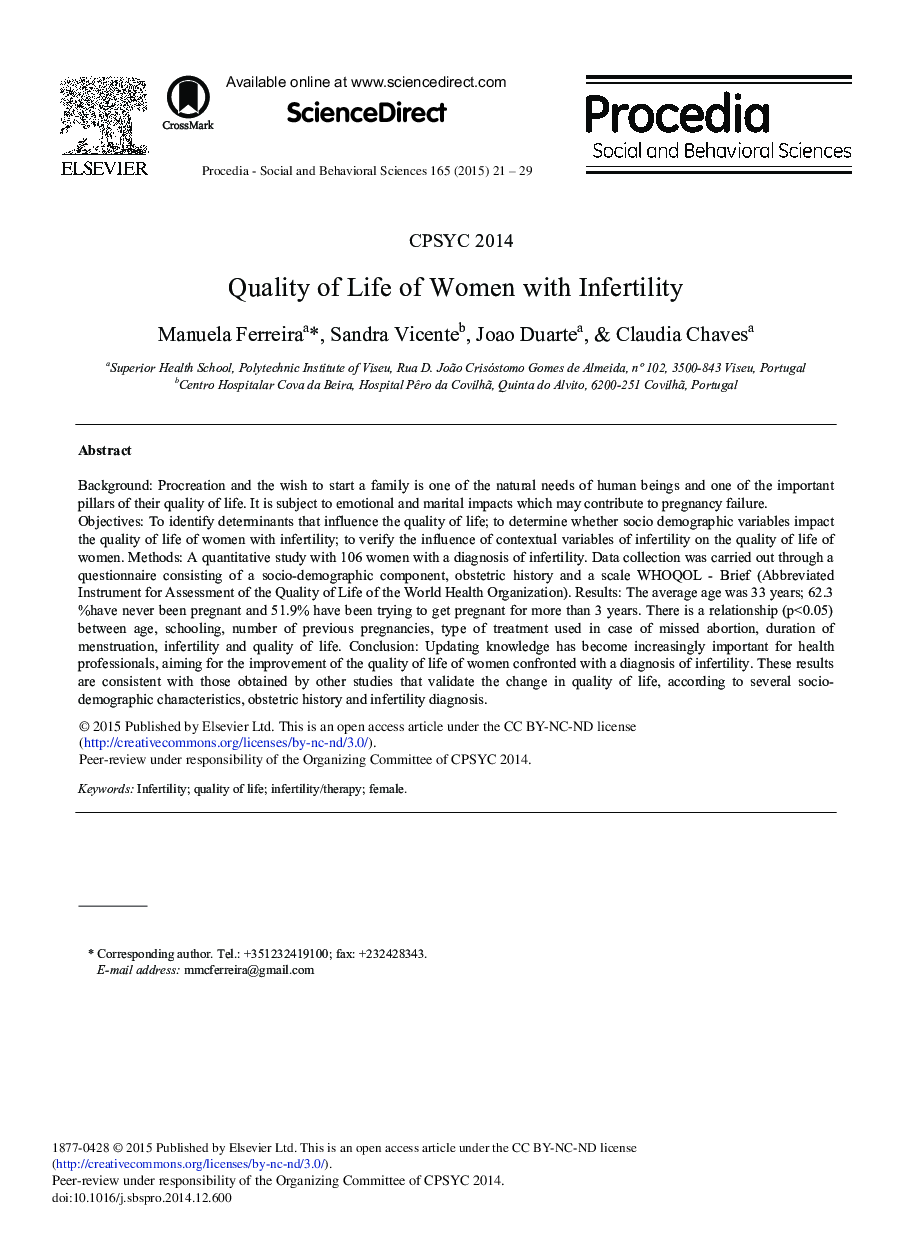| Article ID | Journal | Published Year | Pages | File Type |
|---|---|---|---|---|
| 1111834 | Procedia - Social and Behavioral Sciences | 2015 | 9 Pages |
BackgroundProcreation and the wish to start a family is one of the natural needs of human beings and one of the important pillars of their quality of life. It is subject to emotional and marital impacts which may contribute to pregnancy failure.ObjectivesTo identify determinants that influence the quality of life; to determine whether socio demographic variables impact the quality of life of women with infertility; to verify the influence of contextual variables of infertility on the quality of life of women.MethodsA quantitative study with 106 women with a diagnosis of infertility. Data collection was carried out through a questionnaire consisting of a socio-demographic component, obstetric history and a scale WHOQOL - Brief (Abbreviated Instrument for Assessment of the Quality of Life of the World Health Organization).ResultsThe average age was 33 years; 62.3%have never been pregnant and 51.9% have been trying to get pregnant for more than 3 years. There is a relationship (p<0.05) between age, schooling, number of previous pregnancies, type of treatment used in case of missed abortion, duration of menstruation, infertility and quality of life.ConclusionUpdating knowledge has become increasingly important for health professionals, aiming for the improvement of the quality of life of women confronted with a diagnosis of infertility. These results are consistent with those obtained by other studies that validate the change in quality of life, according to several socio-demographic characteristics, obstetric history and infertility diagnosis.
